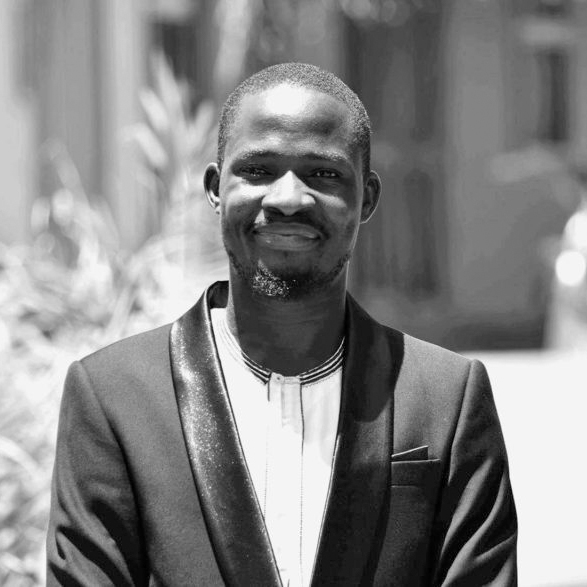In Uganda, we are facing the difficult task of equipping young Christians with a knowledge of the Scriptural story and its relevance for today. If we are going to accomplish this, we must begin by preaching biblical sermons in the pulpit and exploring other avenues to share the gospel.
In my own work with Veracity Fount, I labor to equip the Ugandan church in discipleship and worldview formation. If the African church is going to play a vital role in reaching the nations, we must prioritize equipping and training the next generation. This begins in the pulpit and continues by providing contextualized resources that answer questions that African Christians are asking.
Expository Preaching is Foundational to Discipleship
The primary context of discipleship is the local church. When Christians gather each week, they do so not simply to discuss God’s Word with one another, but to be instructed in God’s Word. God gives local churches elders or pastors who protect the congregation from false teaching and promote sound doctrine through their preaching (Titus 1:9).
In expository preaching, pastors take the main point of a passage of Scripture and make it the main point of their message. If we want young Christians in Africa to be ready to participate in the Great Commission, we must teach God’s Word faithfully and carefully.
If we want young Christians in Africa to be ready to participate in the Great Commission, we must teach God’s Word faithfully and carefully.
Small Groups Help People Understand How to Read the Bible
While Sunday morning gatherings are an essential part of discipleship, local churches would benefit from small groups where the Bible is taught well and applied to life. In Uganda, such spaces exist in a few churches, and even fewer small groups are text-based.
Our ministry provides three weekly inter-denominational small group spaces in various locations in Kampala for young professionals and students to engage Scripture, see what it says, and how to obey it. We hope these spaces help many develop basic Bible study skills in a culture plagued by relativistic and pragmatic biblical interpretation, and we are encouraged by the growth in those who have attended consistently.
Zoom Conversations Deliver Unprecedented Access to Scholars
During my theological training at Gordon-Conwell Seminary, I always wondered how my Ugandan friends could benefit from the faculty at my seminary. The West has a surplus of theological riches. Thankfully, technology has bridged the gap between continents and countries.
We host monthly Zoom conversations that bring respected theologians closer to the Ugandan audience. These various scholars discuss topics pertinent to Ugandans and bring seminary-level conversations to those who would have no opportunity and means to enter the classroom.
African Church History Reveals God’s Work in Our Context
Few Ugandans know the rich Christian heritage in their country or continent. They may learn more about Martin Luther than Festo Kivengere, the prominent Ugandan Anglican leader. But spiritual growth happens when people own the Christian story. They often do so when they know and appreciate God’s work.
Few Ugandans know the rich Christian heritage in their own country. They know more about Martin Luther than Festo Kivengere.
In our own conversations, we explore God’s work in our context and history. During this time, we discussed how Christianity came to Uganda through Alexander Mackay and the missionary efforts of Apolo Kivebulaya in Uganda and Zaire.
We spent time teaching about the birth, growth, and influence of the East African Revival and the ministry of Festo Kivengere in Uganda, Tanzania, Australia, and the United States of America. These conversations aim at helping Ugandan Christians see God at work in their midst through people like them which allows them to see how they can participate in God’s mission in Uganda.
Biblically-Based Resources Answer Contextualized Questions
YouTube inevitably shapes many Ugandan urban youths who are rattled by questions that are not answered on Sunday mornings. Successful discipleship must wisely leverage social media to reach this generation. We create ninety-second video clips that respond to common topics within the Ugandan Christian space from a biblical standpoint which act as a sort of “frequently asked questions.”
We hope to be where our young people are, responding to their questions about faith, the Bible, and life. The goal of these resources is to help Christians think theologically and biblically as they engage life’s profound questions.
Theological Research Strengthens the Church
In order to strengthen local churches in our area, they must have access to contextualized theological resources. At Veracity Fount, we recently published a report on a growing Gnostic cult wreaking havoc within the whole Ugandan church. This report was designed to be accessible to local pastors and the everyday person on the street to discern.
This year, we presented the report at a council meeting for The Gospel Coalition Africa, which raised new issues in other African contexts. With time, we hope to produce bible study materials that aid in the discipleship and evangelistic efforts in Uganda and across Africa.
Libraries Provide a Space to Read, Study, and Research
Apolo Kivebulaya believed Christians “should love books as they are the spears which protect us.” Good books are crucial discipleship tools, but in Uganda, they are rare. With the help of Christian Books and Banner of Truth, Veracity Fount established a public library in Bukoto, Kampala, Uganda, that is open for all those who desire to read, study, and research. The library has over 4,000 books, and though we presently face the challenge of encouraging Ugandan Christians to read, we are creating awareness of these resources.





